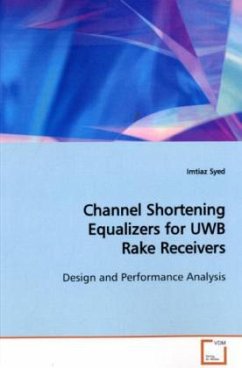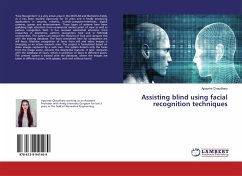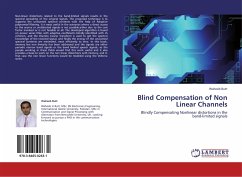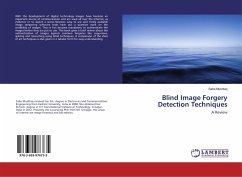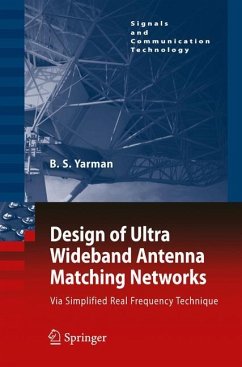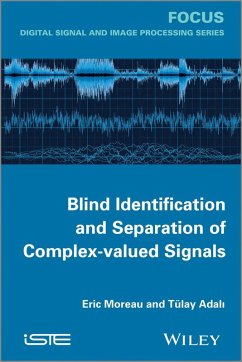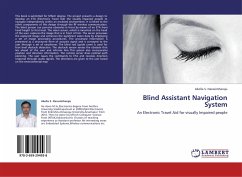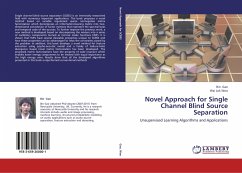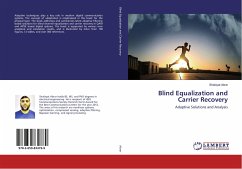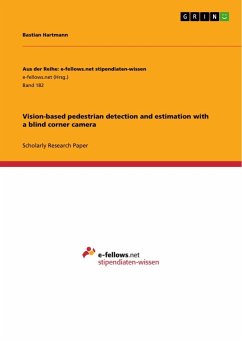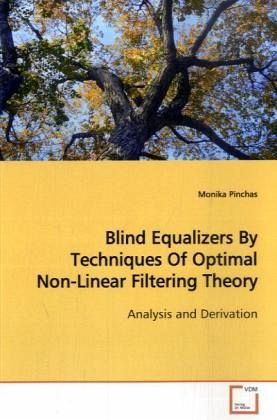
Blind Equalizers By Techniques Of Optimal Non-Linear Filtering Theory
Analysis and Derivation
Versandkostenfrei!
Versandfertig in 6-10 Tagen
32,99 €
inkl. MwSt.

PAYBACK Punkte
16 °P sammeln!
Blind deconvolution, fundamental in signal processingapplications, is a challenging problem. Althoughblind equalization is essentially a nonlinearfiltering problem, it has not yet been treated by allthe well known advanced techniques of optimalnon-linear filtering theory. In this book we use theEdgeworth expansion, maximum entropy argumentationsand the Laplace integral method in order to obtaintwo new groups of blind deconvolution methods whichoutperform the old and new algorithms. The proposedmethods are based on new, closed formed approximatedexpressions for the conditional expectation suita...
Blind deconvolution, fundamental in signal processing
applications, is a challenging problem. Although
blind equalization is essentially a nonlinear
filtering problem, it has not yet been treated by all
the well known advanced techniques of optimal
non-linear filtering theory. In this book we use the
Edgeworth expansion, maximum entropy argumentations
and the Laplace integral method in order to obtain
two new groups of blind deconvolution methods which
outperform the old and new algorithms. The proposed
methods are based on new, closed formed approximated
expressions for the conditional expectation suitable
for the blind deconvolution problem. Since these
expressions do not impose any restrictions (except
that of even symmetric) on the probability
distribution of the (unobserved) input sequence, they
are suitable for a wider range of source pdf compared
to Bellini's, Fiori's or Haykin's expression. The
derivation of the above mentioned equalizers are
accompanied by theoretical analysis of the
performance in the mean square error (MSE) sense and
are justified via simulation. These new methods are
useful to professionals in Communications who seek
for improved equalization methods.
applications, is a challenging problem. Although
blind equalization is essentially a nonlinear
filtering problem, it has not yet been treated by all
the well known advanced techniques of optimal
non-linear filtering theory. In this book we use the
Edgeworth expansion, maximum entropy argumentations
and the Laplace integral method in order to obtain
two new groups of blind deconvolution methods which
outperform the old and new algorithms. The proposed
methods are based on new, closed formed approximated
expressions for the conditional expectation suitable
for the blind deconvolution problem. Since these
expressions do not impose any restrictions (except
that of even symmetric) on the probability
distribution of the (unobserved) input sequence, they
are suitable for a wider range of source pdf compared
to Bellini's, Fiori's or Haykin's expression. The
derivation of the above mentioned equalizers are
accompanied by theoretical analysis of the
performance in the mean square error (MSE) sense and
are justified via simulation. These new methods are
useful to professionals in Communications who seek
for improved equalization methods.



